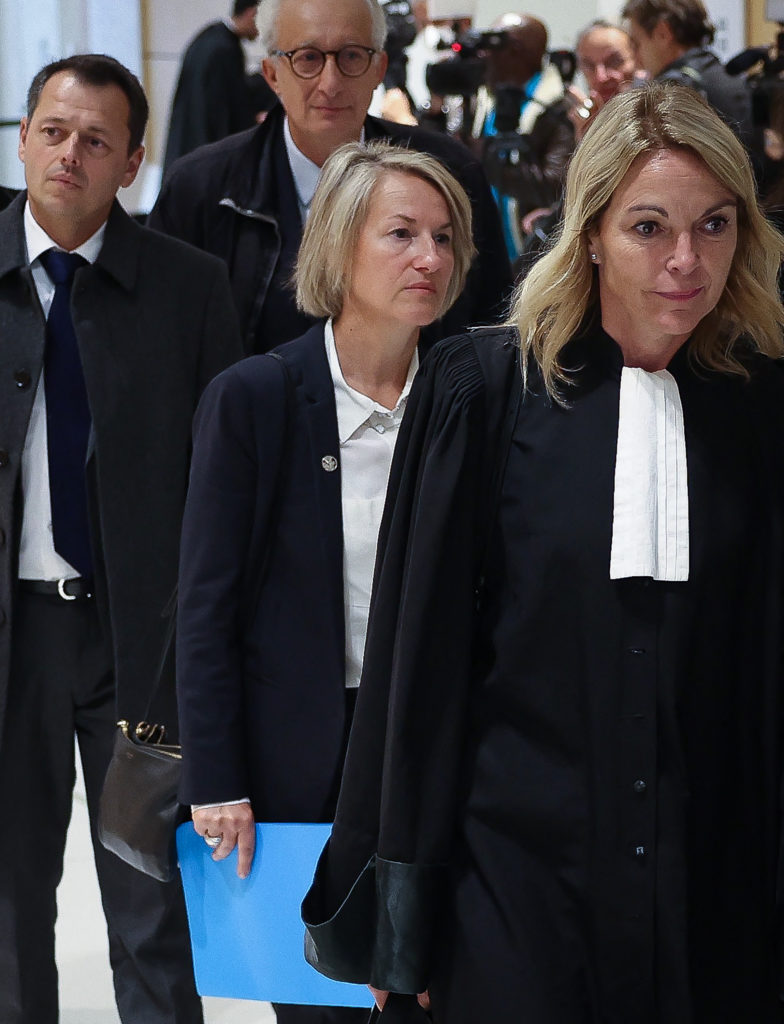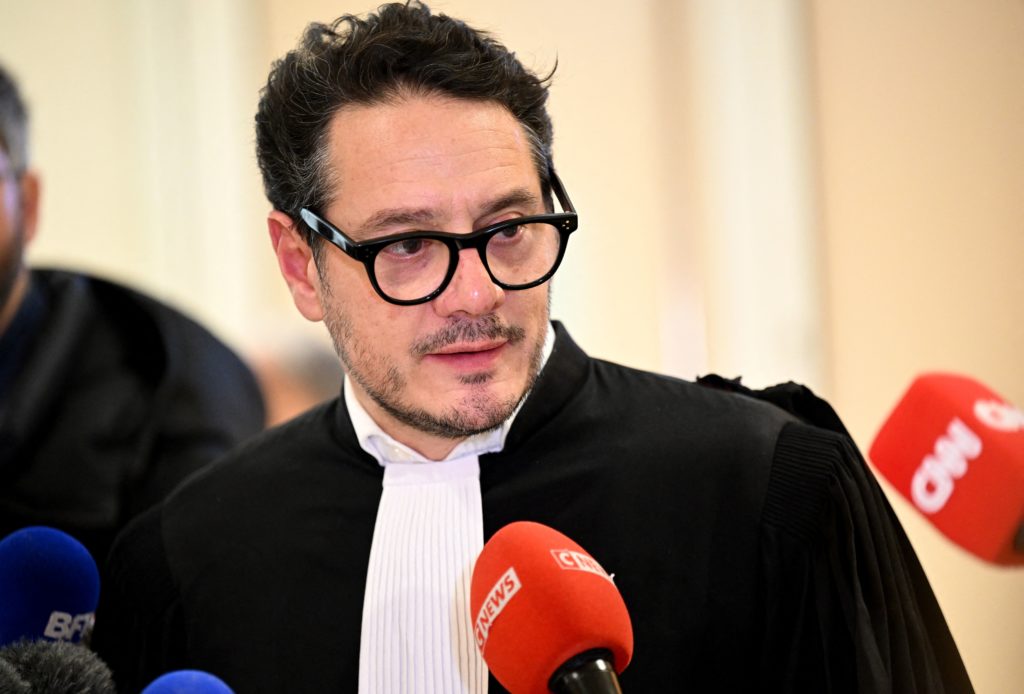Air France and Airbus are acquitted of involuntary manslaughter in relation to Flight 447 which plunged into the Atlantic in 2009
 Air France Chief Executive Officer Anne Rigail (C) arrives at the Paris courthouse during the trial of Airbus and Air France companies for the crash of the Rio-Paris Air France Flight 447 on June 1, 2009 which killed 228 people. (Photo by Thomas SAMSON / AFP) (Photo by THOMAS SAMSON/AFP via Getty Images)
Air France Chief Executive Officer Anne Rigail (C) arrives at the Paris courthouse during the trial of Airbus and Air France companies for the crash of the Rio-Paris Air France Flight 447 on June 1, 2009 which killed 228 people. (Photo by Thomas SAMSON / AFP) (Photo by THOMAS SAMSON/AFP via Getty Images)A French court has cleared Air France and Airbus of charges of involuntary manslaughter over a crash in June 2009 which killed all 228 people on board.
Air France and aircraft maker Airbus faced the charges in the Paris Criminal Court.
The charges related to Air France Flight 447, a scheduled service from Brazil to Paris in June 2009, in which an Airbus A330 plunged into the Atlantic.
The case focused on pilot training and a defective speed-monitoring probe called a pitot tube.
Three Irish women — Dr Aisling Butler (26) of Roscrea, Co. Tipperary, Dr Jane Deasy (27) from Dublin and Dr Eithne Walls, 28, from Ballygowan, Co. Down — were among the 228 people killed when the plane went down in the Atlantic.
The three had studied medicine together in Trinity College Dublin and were returning from a holiday in Brazil.
The Airbus A330 stalled during a storm, and the pilot and co-pilot were unable to correct the attitude of the plane during the storm. The nose came down and the crew were unable to correct the situation. The captain was not on duty at the time — he was on a scheduled rest break.
But the court ruled that even if errors had been committed, a causal link between them and the crash could not be proved.
“Looking at the science at the time, no criminal liability seems to me to be applicable,” one of the magistrates said, according to CNN affiliate BFMTV.
State prosecutors had taken the unusual step of admitting to the court that it was “impossible” to pin the blame on either company, BFMTV reported. However, pilot error was mentioned as a possible cause, although lawyers or Air France said that the full reasons for the crash will never be known. David Learmount, an aviation expert and former Royal Air Force pilot, told Prime Time on RTÉ: “The plane had been travelling at a normal cruising altitude when the pilots became aware of tropical storms ahead. "They knew how to avoid those," he said, "but, all of a sudden, an external sensor got blocked by ice crystals."
The plane then sent an alert to the pilots to inform them that the autopilot function had been switched off – to let them know that they were now in full control. "Their reaction to this situation was very surprising," Mr Learmount said. "I don’t think we’ll ever know exactly why they reacted as they did, except that it was panic.”
Families of the victims sobbed what the verdict was read out. They appeared stunned, although some reacted with anger, with shouts being directed at the magistrates and the lawyers.
“That is the part of the decision that we cannot — we do not — know how to be satisfied by, because nothing in our world, in our age, can justify that 228 people took a flight leaving Rio for Paris and never landed,” David Koubbi, a lawyer representing some of the families of victims of the crash, told BFMTV after the court was adjourned.
 French Lawyer David Koubbi speaks to the press at the end of the court case last week (Getty Images)
French Lawyer David Koubbi speaks to the press at the end of the court case last week (Getty Images)The BBC reports that Danièle Lamy, the president of the association which represents the victims, said the families were "disgusted" that their long fight for justice had come to nothing.
"All that remains of these 14 years of waiting is despair, dismay and anger," Ms Lamy said.
Air France and Airbus had always denied the charges, for which they were facing a maximum fine of €225,000 (£200,000; $247,000).
The companies said pilot error was to blame for the crash.
The investigation revealed that the plane had encountered a high-altitude thunderstorm hours after departing from Rio de Janeiro.
When the air-speed sensors froze and gave false readings, the pilots failed to follow correct procedure and lost control of the plane, which plunged into the ocean.
The judge said there had been several acts of negligence by both companies, but that there was not enough certainty to hold Airbus and Air France liable for the crash.
"A probable causal link isn't sufficient to characterise an offence," the judge said in her statement before a packed court room.
Air France expressed "its deepest sympathy" to the relatives and Airbus reaffirmed its "total commitment (...) in terms of aviation safety".
All 12 crew members and 216 passengers on board were killed when the plane plunged from a height of 38,000ft (11,580m) in what was the worst incident in France’s long aviation history.
The victims came from 33 different countries.
John Butler, the father of Dr Aisling Butler who owns a haulage firm and is a part-time farmer, was among those who gave moving impact statements to the court. He told RTÉ that because Aisling’s body has never been located has made it all the harder, however. "I look out on the ocean and, especially, I look out on to the Atlantic," he said. "You just think of Aisling out there, you know?"

